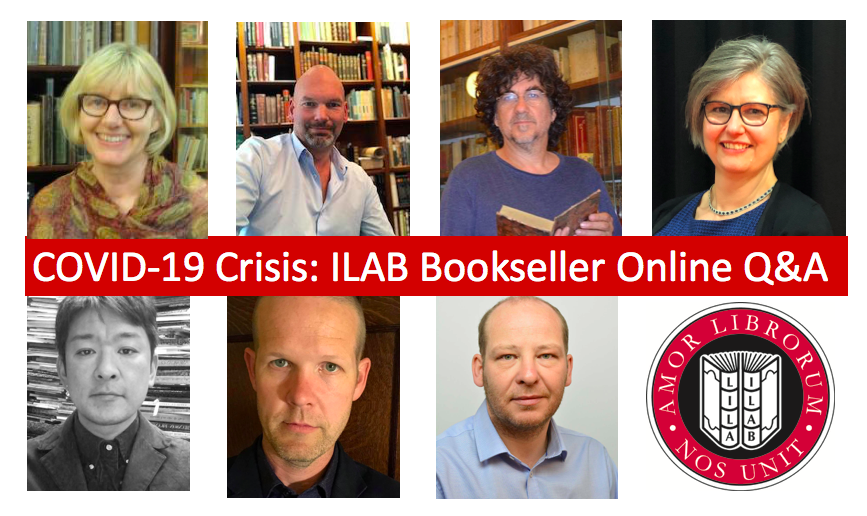Anyone who managed to struggle to the end of my recent post on “Searching For Books In Days Of Yore” may recall my reckless promise to continue on that topic at a later date. It was not an idle threat. So, ignoring the fact that I am probably the only person who actually finds this subject of interest, I will keep my promise and now pick up where I left off two weeks ago.
In case you hadn’t noticed, a lot of things about book searching have changed since the days I was describing in my previous post. Out of all of them, one fundamental change in particular needs to be mentioned first: before the internet came along, if you wanted a specific book that was out-of-print you almost always needed a bookseller to find it for you. There were no real options for doing it yourself. The periodicals which carried the necessary “books wanted” lists were all trade publications. Private buyers did not advertise in them. The search process was effectively closed to the retail customer. This meant that if a sought-after book was available somewhere the buyer who wanted it never actually came in contact with the dealer who had it in stock. At least two booksellers were required for every sale.
The internet made one of those booksellers superfluous.
Needless to say, this innovation did not generate enthusiasm from the booksellers who had once derived income from the inefficient system it destroyed. I have enormous sympathy for them, as I do for all the travel agents, encyclopedia salesmen, music store owners, directory publishers, newspaper delivery boys and members of any other occupations whose lives were similarly upended by the internet. The current popular term for this is “disruption.” It is a very Big Thing and has many people excited. Venture capitalists and technology entrepreneurs worship in the temple of disruption. They spend a good portion of their working day trying to cook up new ways to render useless the existing skills and practices that provide a living for the rest of us. Thus, when disruption came to the book searching business about 15 years ago there was no cheering from the trade. It is easy to understand why. For many of them it was the end of the world as they knew it.
As for myself, there is definitely a part of me that would be quite content if they called a halt to all this disruption and just let everyone go on with their business doing things as they had always done them before. I especially feel this way when I think about all my fellow booksellers who once made a living helping their customers find books in the pre-digital age. In fact, I must confess that I ran a book search service myself once upon a time. It was how I got my start in the book business, even before my wife and I opened our first shop. I did not know then that I was a dinosaur, and was happy not to know it. Things seemed just fine the way they were.
But today, for better or worse, I have to count myself among the disrupters. It would be pointless to pretend otherwise. And if I stand in that camp and consider the question of book searching I feel compelled to do it from the perspective of the buyer rather than the seller. When I do that, this is what I see:
-Before the internet, if you discovered an out-of-print book that you thought might be of interest it generally took at least a week or two just to find out if there might be a copy available somewhere for sale.
After the internet you could find this out in seconds.
– Before the internet you might learn about a book that you thought could be of interest to you, but have no idea of what it might cost you if a copy were found. The only way to find out would be to put a friendly bookseller to the expense and trouble of searching for it for you. Since there was always good chance it might cost more than you could afford or want to pay, it was likely that you would only decide to do this if it were a book you absolutely had to have it.
After the internet you could quickly check the price and availability of any book without expense, embarrassment or commercial engagement.
-Before the internet, the pool of available books to search from was limited to the available stock of those booksellers who took the time and trouble to quote from published want lists. This was only a tiny fraction of the total books available in the marketplace.
After the internet, the pool of findable books exploded as it became possible for booksellers to upload their entire inventory online and leave it there until sold. At the same time, the actual quoting of a book became unnecessary to sell it. These two things made it dramatically easier to locate a reasonable copy of a wanted book.
– Before the internet the reach of want lists rarely went beyond national or linguistic boundaries. The periodicals that carried them had limited distribution beyond the countries they were published in, and quoters rarely saw profit in mailing out quotes at international postage rates. This made searching for books published in other countries or languages especially difficult.
After the internet the marketplace became international. Metasearch sites brought books together from booksellers around the world. Customers were no longer limited to looking for foreign books primarily from the stocks of booksellers in their own country.
– Before the internet, most of the book descriptions offered to search services provided little more than a coded description of format and condition. Things like “8vo, v.g./dj.” were often all you knew about the copy you were offered to buy,
After the internet descriptions became fuller and more useful. Many copies were even illustrated with photos, and if photos were necessary and not already displayed online it was always possible to ask for them to be sent as email attachments.
Of course, the most significant change of all was in the price of books. Before the internet, common books purchased through search services were usually quite expensive relative to what they would normally sell for anywhere else.
After the internet, common books became cheap.
I could go on, but there is no need. The point is made. Disruption came to the world of book searching and the result, for the consumers at least, was a dramatic change for the better. What was once impossible became possible. What was once difficult became simple. What was once costly became cheap. And the vast availability of books online, coupled with new and powerful tools to search for them, enabled serious bibliophiles to pursue their interests in ways that were unimaginable two decades before.
Collectors, of course, already know this – the younger ones in particular. I hear it from them often. They are happy. Many of them have come to realize that they are living in a golden age. The booksellers of my generation, however, are not all convinced. I still hear many of them complaining about how heavy and shiny everything has become. I try to argue with them sometimes, but I never win.
 Our third virtual showcase is now in preparation and scheduled to open on April 24. If you are a professional bookseller looking to reach an international audience of serious book lovers we think a virtual shelf in our next showcase will be the ideal place for you to display to the world your rarest and most exciting offerings. There are many reasons why we believe this will be the ideal online venue for you to showcase your choicest items for both new and familiar customers. They include:
Our third virtual showcase is now in preparation and scheduled to open on April 24. If you are a professional bookseller looking to reach an international audience of serious book lovers we think a virtual shelf in our next showcase will be the ideal place for you to display to the world your rarest and most exciting offerings. There are many reasons why we believe this will be the ideal online venue for you to showcase your choicest items for both new and familiar customers. They include:
 It was formed in 2005 by the Asociación Profesional del Libro y Coleccionismo Antiguos with members from nearly all the Autonomous Communities of Spain. It operates as a non-profit association owned and controlled exclusively by its members.
It was formed in 2005 by the Asociación Profesional del Libro y Coleccionismo Antiguos with members from nearly all the Autonomous Communities of Spain. It operates as a non-profit association owned and controlled exclusively by its members. The ILAB has organised a ZOOM webinar for members of the worldwide book trade to discuss the COVID-19 pandemic and its impact on their business now and in the future
The ILAB has organised a ZOOM webinar for members of the worldwide book trade to discuss the COVID-19 pandemic and its impact on their business now and in the future